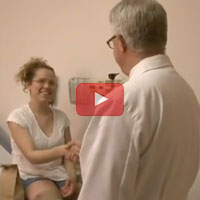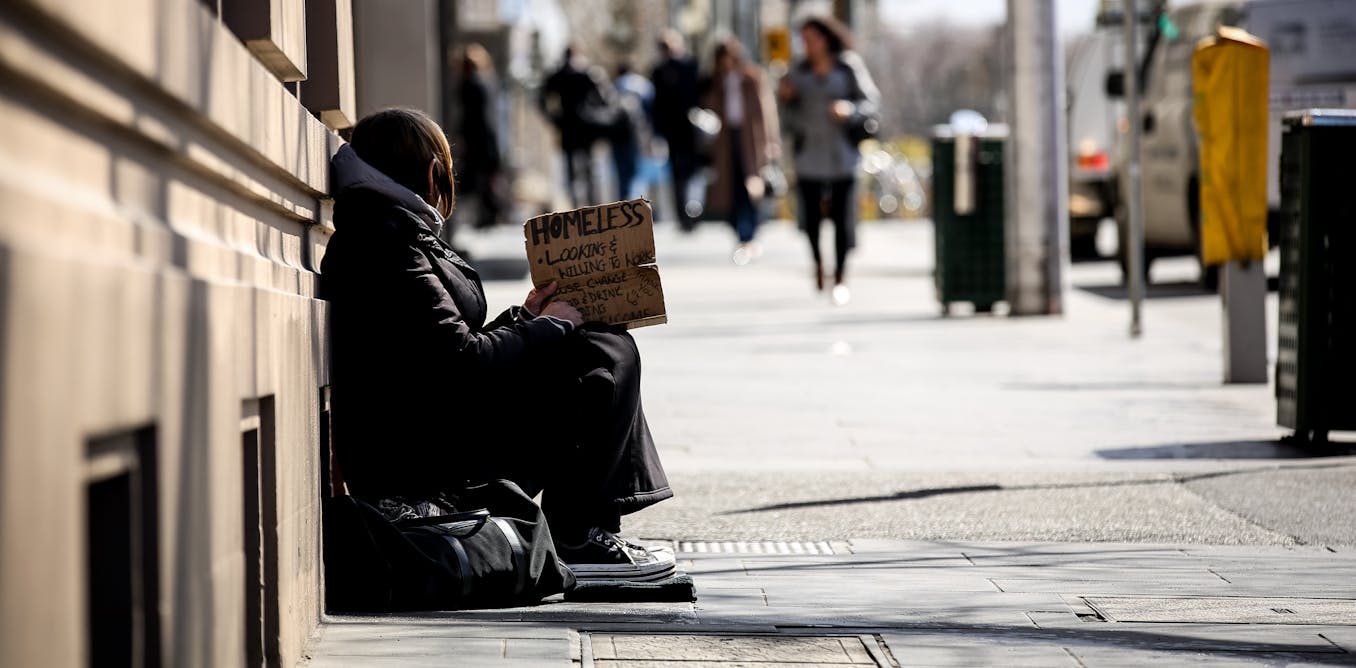- Step 1: Determine if the medicine is eligible for donation. All donated medication must meet the following criteria:
- Step 2: Check your state’s regulations on medicine donation.
- Step 3: Fill out the required forms.
- Step 4: Remove any personal information from the packaging.
- Step 5: Coordinate shipping or drop-off of the medication.
How to donate your body to medicine?
Nov 09, 2021 · Donated drugs must be deposited at certain locations and not be expired or opened. The benefits of donating medications are helping people who cannot afford them and safely disposing of drugs to reduce the risk of substance abuse. Some people find it inconvenient to deliver donation drugs to an approved location.
How to donate unused medicine?
Donate Now Find Medications Your help has created a prescription drug program that improves access to needed medications for those who can't afford them. Help the Charitable Pharmacy Group impact more families with a monetary donation. Your …
Where can I donate unused medicine?
Donate Medicines – Donate Unused Medicines in Delhi / Give your old medical equipment a new home. Donate today. Uday Foundation, 233, Block – D, Sarvodaya Enclave, New Delhi 110017, Phone : 011-41098444 / 011-26561333 / 011-26561444.
Is there a place to donate unused medication?
Mar 23, 2020 · UW Medicine has seen an unprecedented outpouring of inquiries from the community asking how they can help staff who are working on the front lines of the COVID-19 pandemic. In response, we've set up a website where individuals can make cash or in-kind donations and leave messages of support for healthcare workers. The website provides …

What is a drug donation repositories?
They are part of a growing network of programs like theirs—drug donation repositories that work with manufacturers, pharmacies, long-term health facilities and individuals to connect patients with treatment. Prescription drugs accounted for almost 17% of personal health spending in 2018, according to health expenditure estimates from ...
How to dispose of a pill?
For all substances not on the flush list, follow these steps based on EPA and FDA recommendations to dispose of them via your household trash: 1 Empty the bottle or container of all medicine. 2 Thoroughly mix the pills or tablets with an undesirable substance, such as cat litter or used coffee grounds. 3 Place the mixture in a disposable container. 4 Scratch off or cover all personal information on the medicine bottle with a permanent marker. 5 Dispose of the container holding the mixture and the empty bottle in your household trash.
How can nurse practitioners help with prescription waste?
One way is by prescribing short initial fills for patients to help avoid drug abandonment, which is when patients fail to pick up a filled prescription at the pharmacy. First fills are three times as likely to be abandoned as refills.
Why are prescription drugs dangerous?
Prescription drugs left in the home, especially if they aren’t properly stored, are dangerous . The CDC estimates 50,000 young children are sent to the emergency room every year because they get into medicine while adults are not watching. Pets can also ingest drugs that are poisonous to them, such as NSAIDs like Advil.
How to get rid of a swollen ear?
Empty the bottle or container of all medicine. Thoroughly mix the pills or tablets with an undesirable substance, such as cat litter or used coffee grounds. Place the mixture in a disposable container. Scratch off or cover all personal information on the medicine bottle with a permanent marker.
Who is Erika Kimball?
Erika Kimball, RN, a health care sustainability consultant, said prescribers are also key figures in patient education on proper medication disposal methods. “Discussing options for disposing of unused drugs can be a routine part of discharge instructions in the hospital,” Kimball told the American Journal of Nursing in 2015. “And it can be done in the physician’s office as well, when a patient is given a prescription.”
Can you flush a medicine down the toilet?
Safe Medication Disposal in the Household. If a drug take back service is not readily available, do not flush the medicine down the toilet or drain unless it is one of the few drugs on the FDA’s Flush List. These are substances that are especially harmful and could be fatal in a single dose.
Why do people donate medicines?
By donating medicines, a person takes a big step toward helping others. In addition, they also protect themselves and those they care about from the dangers of substance abuse, which can quickly develop into addiction and dependence.
What are the drawbacks of donating medicine?
Currently, the most significant drawback to medication donation is the inconvenience of having to collect the medicine, get into the car and deliver it to an approved location. Depending on the state and the person, this could be a minor issue or one significant enough to hinder the process.
What are the benefits of donation?
In reality, the benefits of donation programs are numerous and include: Helping those who cannot afford medications due to high costs or limited insurance benefits.
What is the purpose of a drug disposal program?
Helping those who cannot afford medications due to high costs or limited insurance benefits. Offering a way to properly dispose of medications without the risk of contaminating local water supplies. Limiting the risk of substance abuse within one’s home.
How many states allow drug donation?
Although people may be unaware of the available programs, drug donating is allowed in 38 states, and there are laws in place to organize and regulate the process. Of the states that have passed laws, more than half of them have established the actual programs that collect and redistribute the medications.
Which states accept unused prescription drugs?
For example, states like Colorado and Florida only accept unused drugs prescribed for cancer treatments. Alternatively, states like Georgia and Iowa take all prescription and over-the-counter medications as long as they are in sealed packaging. Beyond drugs, many states ask for donations of medical devices as well.
Do people open their medicine cabinets in the morning?
Many people open their medicine cabinets in the morning and see a wall of medications staring back at them. Regardless of whether these are over-the-counter medicines or prescriptions for various illnesses, many Americans have access to many types of medication. Some of these medications will be actively used on a regular basis, ...
Your Donations Could Save a Life
We are working to bridge the gap between the billions of dollars of unused and unexpired medications thrown away each year and the patients who need them.
Help the Charitable Pharmacy Group impact more families with a monetary donation
Your financial support makes this program possible. With your donations we are able to provide the administrative support that allows this program to operate and serve those in need. Please consider making a financial donation to the Charitable Pharmacy.
What is a drug donation program?
Pharmaceutical donation and reuse programs are distinct prescription drug programs providing for unused prescription drugs to be donated and re-dispensed to patients. Such drug repository programs began with state legislative action in 1997. As of fall 2018 there are 38 states and Guam with enacted laws for donation and reuse.
Which states allow prescription drug donations?
Nevada passed legislation combining the HIV and AIDS Drug Donation Program and the Cancer Drug Donation Program to form the Prescription Drug Donation Program. Tennessee amended legislation to allow prescription donations to charitable organizations.
How many states have operational repository programs?
Many of these programs are not operational or small, but successful programs are growing. A few measures have been repealed. Twenty-one states currently have enacted laws with operational repository programs. At least a dozen and a half additional states are categorized as having non-operational enacted laws.
What is an RX patient?
Program eligible patients: Qualified patients for transfer free of charge or at a reduced charge to those individuals. Rx : Unused prescription drugs, devices, and cancer drugs. Restrictions: Drugs defined as a dangerous drug or a drug designated as a precursor to a controlled substance cannot be accepted.
How many states have laws on donation and reuse?
As of fall 2018 there are 38 states and Guam with enacted laws for donation and reuse. Although states have passed laws establishing these programs, more than a dozen of these states do not have functioning or operational programs.
Which states have expanded the cancer drug program?
2018. Florida considered legislation revising and expanding the cancer drug program to accept other medication as the Prescription Drug Donation Program. Virginia amended legislation and New Hampshire sent legislation to the Governor pertaining to their drug donation and reuse policies.
Which states have passed legislation to allow over the counter donations?
Washington and Idaho passed legislation that amended participation and donations in the prescription drug donation program. Georgia passed a bill that amended its program, which added over-the-counter drugs for acceptable donations. Minnesota and Utah passed bills establishing new programs. 2017.
Which states have drug donation laws?
States such as, Colorado, Florida, Kentucky, Michigan, Nebraska, and Wisconsin, have created programs specifically for collecting and redistributing cancer-related prescription drugs to eligible patients.
What is a drug take back day?
During these events, people can bring unused or expired medications to a central location where they can be disposed of safely.
How to get rid of a swollen ear?
Put the medication in a sealable container, such as a plastic bag or coffee can. Mix the medication with an undesirable substance such as cat litter or used coffee grounds. Do not crush pills, tablets, or capsules. Seal the container and be sure to put it in the trash, not the recycling.
When is the next take back day for 2021?
The next take-back day is Saturday, October 23, 2021, from 10 a.m. to 2 p.m. Search for a collection site in your local area or call 800-882-9539 for more information. Alternatively, some local government agencies, doctors' offices, and pharmacies have programs or protocols in place for collecting medications.
Can you flush medications into the groundwater?
However, some communities have rules and restrictions against flushing medications, as the chemical components can filter into the groundwater and potentially affect the environment. When in doubt, check with your local water treatment and/or sanitation department.
Can you put a container in the trash?
Seal the container and be sure to put it in the trash, not the recycling. Remove the label or completely cross out any personal information before putting an empty container in the recycling bin or trash. This will help protect your identity and the privacy of your health information.
Can you donate expired medications?
Expired drugs and controlled substances are never accepted. In general, you cannot receive payment for donated drugs. If you have additional questions about disposing of unused or expired medications, talk with your pharmacist or doctor to see what options are available.

Popular Posts:
- 1. where can i donate a crib mattress
- 2. where do i donate clothes
- 3. how to donate money to german shepherd rescue
- 4. wa. state, how to donate ones body to science
- 5. how to donate money to texas
- 6. how much are you paid to donate eggs
- 7. why donate to
- 8. where to donate old rear projection tv 2018
- 9. how much money does the red cross actually donate?
- 10. where can i donate flying magazines